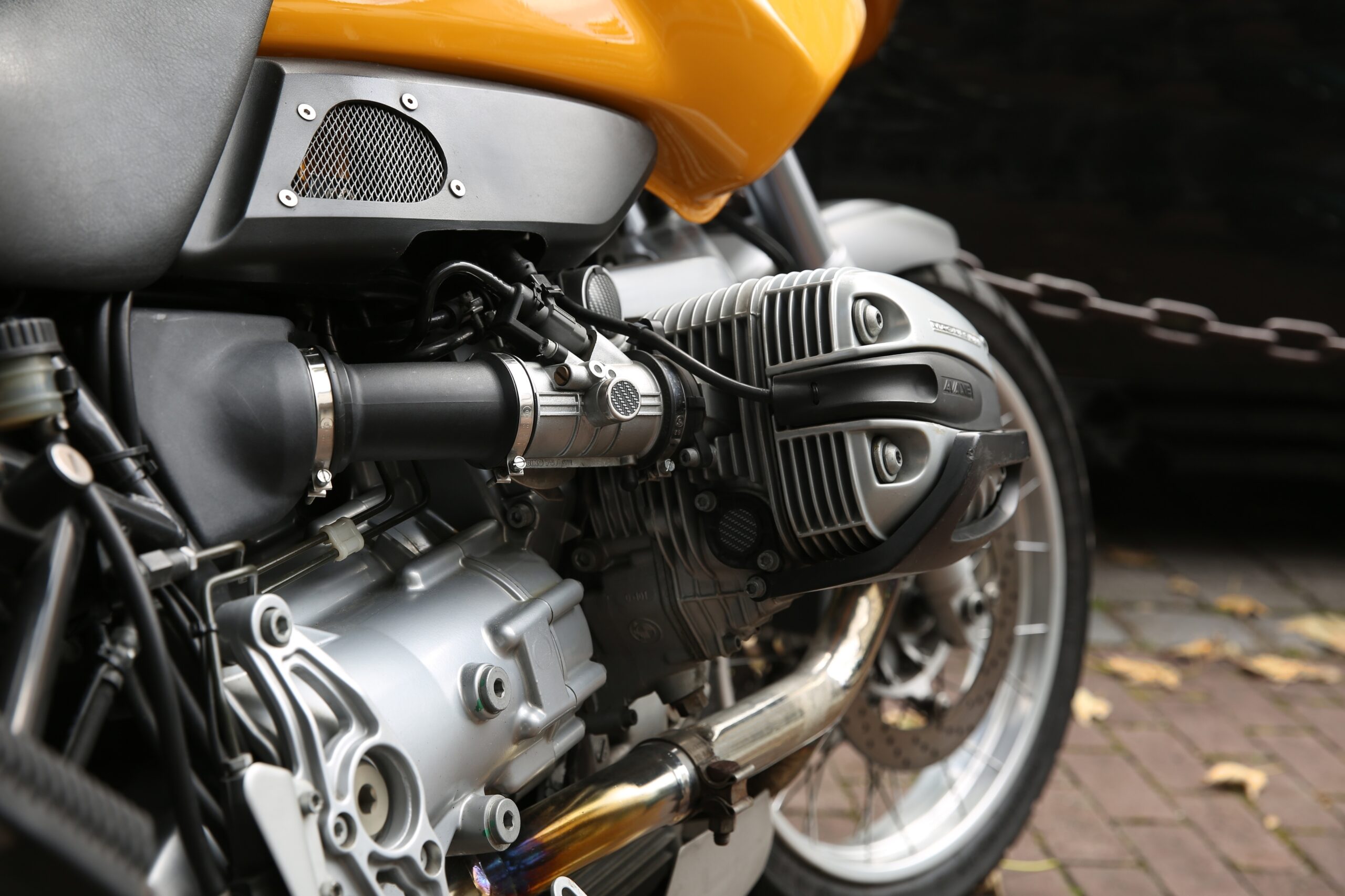Preparing for your motorcycle test can be daunting, but understanding how to avoid the most common mistakes can significantly boost your success rate. Let’s dive into some practical tips that can help you sail through your motorcycle test with flying colors.
Firstly, a key element often overlooked by many learners is mastering the art of precise control. It’s not just about speed but managing your motorcycle smoothly, especially during maneuvers like U-turns and emergency stops. Practice these regularly to ensure you’re comfortable and confident during both slow-speed exercises and higher-speed road riding.
Secondly, road awareness is crucial. During the test, demonstrating that you can anticipate and react appropriately to other road users’ actions is vital. Spend ample time riding in different traffic conditions to develop this acute sense of awareness. This not only helps in avoiding hazards but also teaches you how to handle the bike under various road conditions.
Finally, never underestimate the importance of familiarizing yourself with the test layout and commonly tested routes. Knowing what to expect can significantly ease your nerves and improve performance. Remember, it’s not just about passing the test, but becoming a safe and responsible motorcyclist.
By focusing on these aspects, you’re not only preparing to pass the test but also setting a foundation for years of enjoyable and safe riding.
Understanding Motorcycle Test Failures: An Overview
Preparing for your motorcycle test can seem daunting, but understanding why others fail can give you a head start in passing on your first attempt. By focusing on the most common pitfalls, you can develop a targeted strategy to ensure your success.
Essential Pre-test Preparation
Before heading to your motorcycle test, preparation is critical. Ensure that your motorcycle is in excellent condition, as mechanical faults can lead to an immediate fail. Double-check functionalities such as signal indicators, brakes, and headlights. Familiarize yourself with the testing area; knowing the roads can help you anticipate and navigate them better during the test, mitigating the risk of errors due to unfamiliarity.
Common Causes of Motorcycle Test Failures
Motorcycle test failures often root in a few common issues that can be classified into several categories including control issues, safety maneuvers, and traffic rules comprehension.
Insufficient control over the bike: This includes not being able to smoothly start, stop, or steer the motorcycle.
Failing to execute proper safety checks: Neglecting rear and blind-spot checks before maneuvers can lead to serious safety concerns.
Poor speed management: Either exceeding speed limits or driving too slowly can imply a lack of confident vehicle handling.
Inadequate observation at intersections: Failing to properly assess and respond to the traffic conditions at intersections is a major issue.
Practice Techniques to Enhance Your Riding Skills
One effective approach to avoid test failures is through rigorous practice, which should focus on both the technical aspects of riding and the observational skills necessary on the road.
– Engage in regular riding sessions in various traffic conditions to improve your adaptability and confidence.
– Work extensively on maneuvers like U-turns, emergency stops, and precision riding, which are often part of the test.
– Consider professional training or advanced riding courses, which can provide deep insights and corrective feedback on your riding techniques.
How Proper Planning Prevents Poor Performance
Arriving well-prepared on your test day can significantly impact your performance. Ensure that you have all necessary documents with you and arrive early to avoid last-minute stress. Maintain a relaxed yet focused mindset, and remember that your examiner is there to assess your competence, not to make you fail.
Strategies for Test Day Success
During the test, staying calm and focused is as crucial as your riding skills. Remember these key strategies:
– Regularly check mirrors and perform shoulder checks, especially before changing lanes or directions.
– Follow all traffic signs and signals diligently; errors here can be costly.
– Communicate your movements to other road users using your indicator lights or hand signals whenever necessary.
– Consistently maintain safe distancing from other vehicles, giving yourself ample time to react to unexpected situations.
Further Learning and Resources
For more comprehensive insights and training in preparation for your motorcycle test, consider visiting Motorrijschool Delft. With personalized attention limited to two learners per instructor and flexible schedules, you can enhance your riding skills efficiently.
In conclusion, avoiding common motorcycle test failures largely revolves around thorough preparation, adequate practice, and maintaining focus during the test. By understanding and working on these aspects, you significantly increase your likelihood of passing the test. Remember, success on the motorcycle test not only requires handling the bike but also demonstrating a clear understanding of road safety principles.
Meest gestelde vragen over het vermijden van veelvoorkomende fouten bij je motorrijexamen
1. Wat is de meest voorkomende fout tijdens het motorrijexamen?
Een van de meest voorkomende fouten die je tijdens het motorrijexamen kunt maken is het niet goed uitvoeren van kijktechnieken, zoals het over de schouder kijken en het juiste gebruik van de spiegels. Bij Motormeesters zorgen we ervoor dat je uitgebreid traint in het correct observeren van je omgeving, waardoor je minder snel deze fout zult maken.
2. Hoe kan ik zenuwen beheersen op de examendag?
Zenuwen zijn normaal, maar kunnen je prestaties beïnvloeden. Wij adviseren altijd om voor het examen een goede nachtrust te krijgen, een lichte maaltijd te eten en diep adem te halen. Bij Motormeesters bieden we een gratis proefles aan om vertrouwd te raken met de motor en de examenomgeving, wat je zelfverzekerdheid opbouwt.
3. Hoe voorkom ik dat ik tijdens het examen verkeerstekens mis?
Ken je verkeerstekens! Het missen van verkeerstekens is een veelvoorkomende misstap. Tijdens onze lessen bij Motormeesters, zul je intensief oefenen met realistische scenario’s en verkeerstekens om ervoor te zorgen dat je goed voorbereid bent.
4. Wat moet ik doen als ik een manoeuvre misluk?
Panikeer niet als een manoeuvre niet meteen lukt. Onthoud, fouten maken is menselijk. Blijf kalm en concentreer je op de volgende opdracht. We simuleren echte examensituaties tijdens de lessen om je reactievermogen op fouten te verbeteren.
5. Hoe belangrijk is de keuze van de rijschool voor mijn slaagkansen?
De keuze van je rijschool speelt een cruciale rol. Bij Motormeesters, met persoonlijke aandacht en een maximum van twee leerlingen per instructeur, flexibele betaalopties en garanties zoals een gratis AVB herexamen, vergroot je aanzienlijk je kans op slagen door kwalitatief onderwijs en ondersteuning.
Zorg ervoor dat je goed voorbereid bent, gebruik maakt van professionele instructie en vooral, blijft oefenen. Bij Motormeesters helpen we je met plezier op weg naar jouw rijbewijs zonder onverwachte hindernissen!



